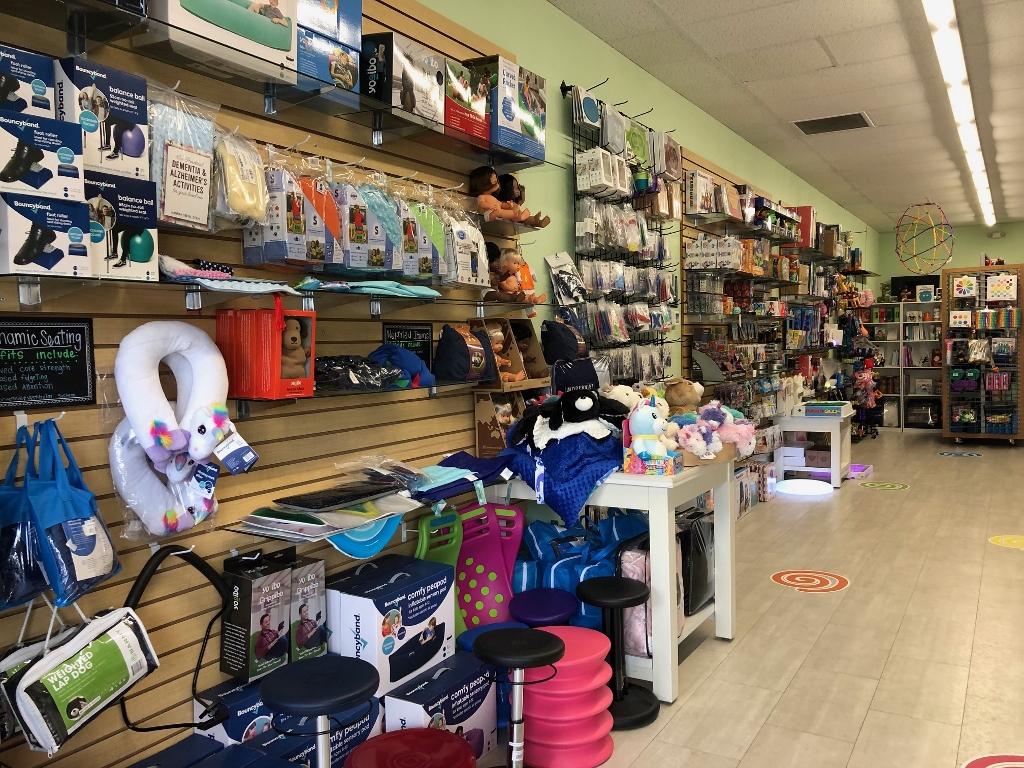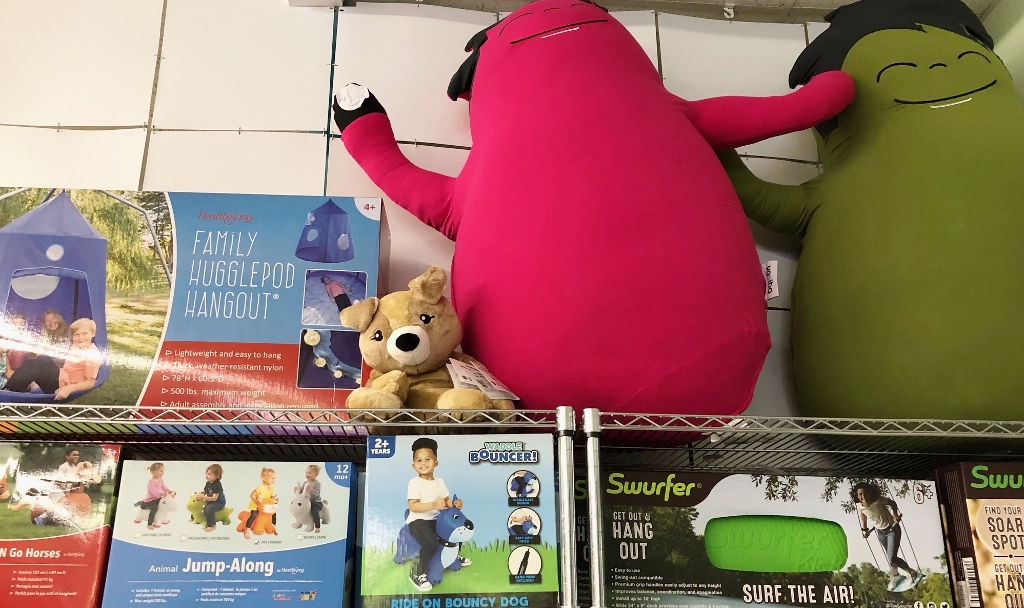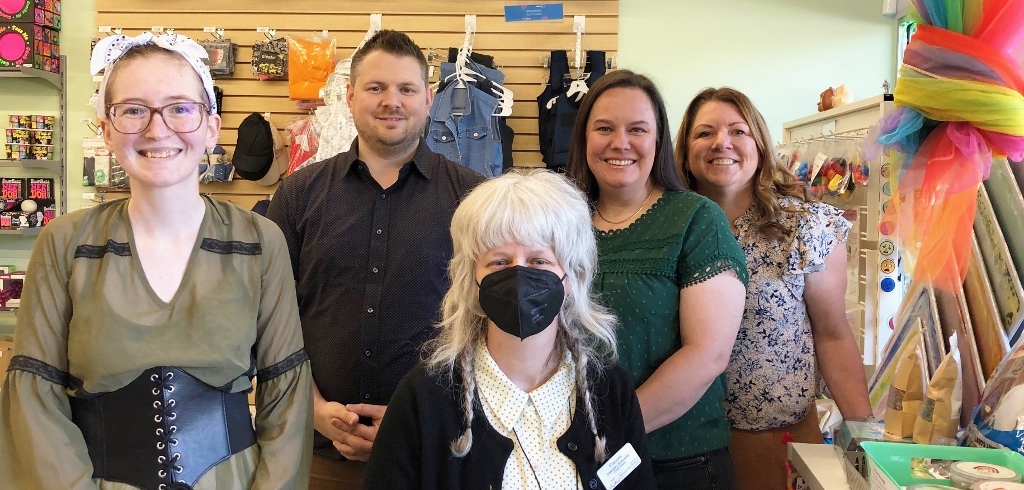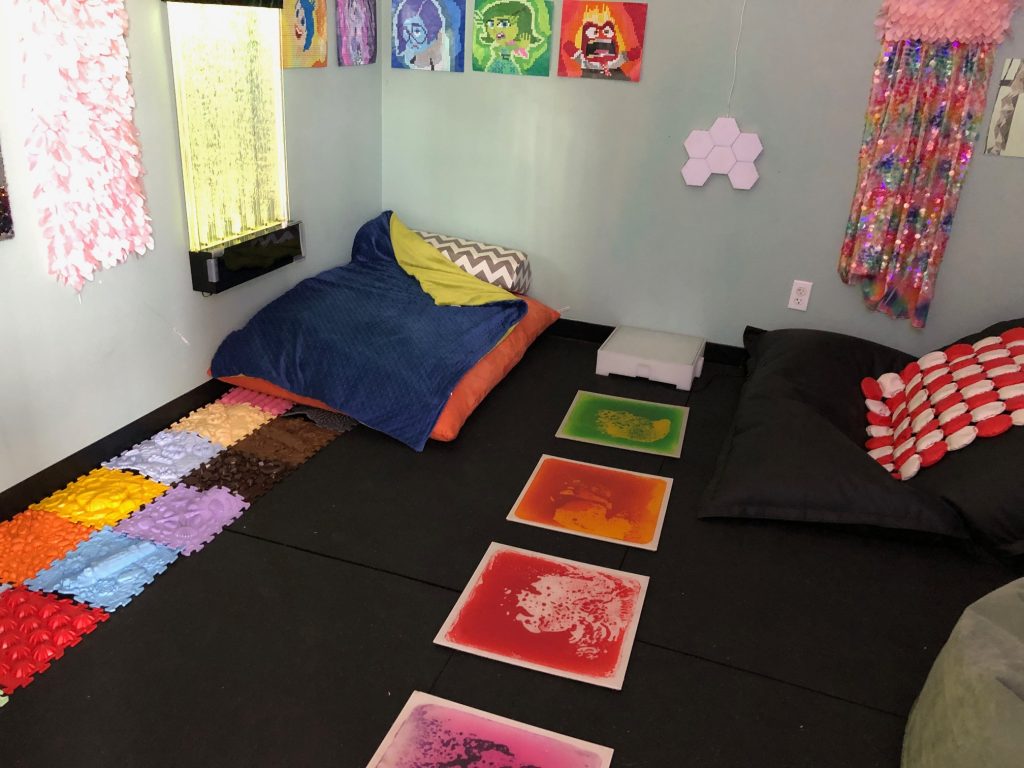Sensory Tool House, LLC wants everyone to be able to fully experience large events, trips to the mall, conferences, carnivals, church services, water parks and all the ways people get together to share in life’s group activities. But Sensory Tool House staff recognize that many people, and not just neurodivergent individuals, may avoid such activities when they are subjected to the overstimulating noises, sights, smells and sounds that often accompany the gatherings. That’s why the Lacey retailer is now a regional resource for organizations and businesses wanting to provide spaces that are sensory supportive environments.
“Regulate and reenter. That’s the goal,” says Director of Resources Lauren Howard. “People can enter the space, regulate, and go back to the event.”

Sensory Tool House Says Creating a Safe Place to Regulate Overstimulation Provides a Fuller Experience
Many of us may feel occasionally overloaded at large events or crowded venues. Heightened sounds, aromas, people bumping into each other, standing in lines, challenges in keeping track of children, all can increase stress. For people who are also neurodivergent, such activities can amplify those stressful feelings and sometimes trigger reactions.
Neurodivergence covers a wide range, for example, a person who is autistic, or has attention deficit hyperactivity disorder (ADHD), dyslexia, Tourette’s syndrome, obsessive-compulsive disorder (OCD) or other brain features causing a uniqueness in brain function and encompasses approximately 20% of the population.

In addition, parents wanting their neurodivergent children to fully participate in group activities may have extra challenges when their own energy is depleted from trying to keep their children on an even keel. “Parents don’t have the bandwidth then to navigate with grace,” says Howard. “They have all surpassed their stimulation threshold.”
Designating a quiet place for a calming reset, especially one with sensory-friendly devices and strategies, can help overstimulated persons regulate their nervous system so they have better control over their reactions. Planning for this space enables everyone to share more fully in what is intended to be enjoyable experiences. And Sensory Tool House can help do just that.
Sensory Tool House Can Help Plan Sensory Supportive Spaces and Offers Useful Resources
Sensory Tool House has made its expertise available to many regional events and organizations that want to create a sensory recovery space. A few recent examples include the Lacey Spring Fun Fair, Capital Mall Tabletop Day, area schools, after-school events, festivals and more.

Sensory Tool House owner Katie McMurray says they can provide a free 30-minute consultation to businesses and organizations that want to create a permanent, temporary, or pop-up sensory supportive area. In addition, Sensory Tool House’s retail items include many collections of sensory supportive equipment and tools that can be used indoors or outside. These tools make it easy for a business or organization to set up a sensory supportive space and build a friendly, safe and inclusive community.
Sensory Tool House Says Sensory Supportive Spaces Also Benefit Businesses and Organizations
McMurray says it’s not just the person feeling overstimulated who values a sensory recovery space. She says businesses and organizations also benefit when providing a quiet decompression area for their participants and customers to regroup. “We hear comments like, ‘We can stay longer’ and ‘Have you been here all the time’ and ‘I wish I knew you were here because I would have come earlier,’” McMurray says.
Howard explains that the staff and volunteers of an organization, business or agency likewise reap rewards from sensory recovery spaces. “It gives them a quiet, cool space to regulate, and then they can re-enter the event, and go on,” she says.

Supportive recovery spaces enable better access to community members who want to attend, shop, travel or learn because now they don’t have to stay at home as the only way to regulate responses. This access increases not just participation, but local spending. McMurray adds that such spaces are now available nationally at several conference halls, stadiums, airports, malls and other venues where people assemble. Some designated spaces are permanent, and some are pop-ups for a specific event.
McMurray says another benefit is an increase in diverse community participation. “Looking at it from a business standpoint, it also furthers efforts in DEI (Diversity, Equity and Inclusion) for the neurodivergent community, who are often left out,” she adds. “It furthers your impact on that community.”
McMurray says the bottom line is that everyone benefits from businesses, organizations and government agencies creating sensory re-set spaces. “We are all regulating, every day,” she says.
Contact Sensory Tool House to Learn More About Creating Sensory Supportive Environments
To learn more, visit the Sensory Tool House website, stop into the Lacey store or call the staff who are always ready to assist.
Sensory Tool House, LLC
5831 Lacey Boulevard SE Suite J, Lacey
360.915.9457
Sponsored















































